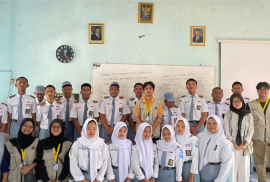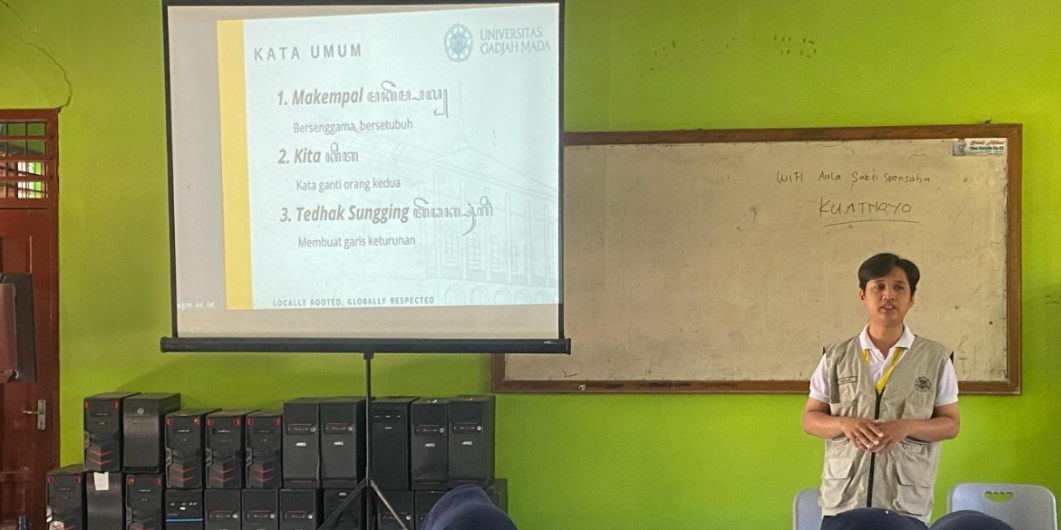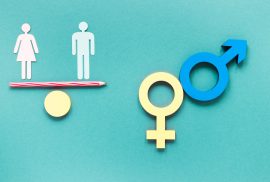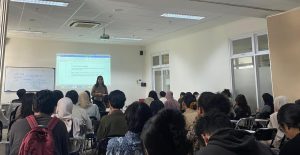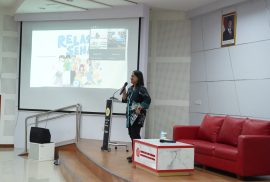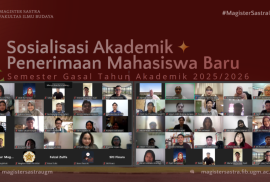On Sunday (August 24, 2025), HMJ Kamastawa conducted social service and teaching activities at the Darun Najah Orphanage and Shelter for the Poor in Maguwoharjo Village, Depok, Sleman. This initiative, organized by the Social Community Division and the Academic Division, reflects the students’ social responsibility and dedication to the community as part of implementing the Tri Dharma of Higher Education. The target audience for the activity was orphaned and underprivileged children, with a focus on educational support for female high school students.
Prior to the social service activity, the Social Community Division opened donations of money and goods, including reading books, stationery, and cleaning supplies. These donations were then distributed to meet the needs of the Darun Najah Orphanage.
The series of events began with a teaching activity guided by the Academic Division with the theme of Javanese script and how to write it. In this session, students presented interactive group games. Participants were asked to answer questions competitively, and each correct and quick answer would earn points. After the game ended, the group with the most points was entitled to a prize.
The event continued with a social service activity by the Social Community Division, which donated snacks and necessities for the orphanage, such as brooms, boxes, and so on. The funds for these necessities were obtained from an open donation that had been opened previously.
The event concluded with a symbolic presentation of commemorative plaques and the handover of donations from the chairman of HMJ Kamastawa to representatives of the Darun Najah Orphanage management. Students and orphanage children also took part in a group photo session to commemorate the occasion and share stories.
Kamastawa’s community service activities are not merely about carrying out work programs, but also provide a shared learning space that offers valuable experiences for both students and children at the orphanage. In addition, these activities support the achievement of the Sustainable Development Goals (SDGs) in the areas of health, education, equality, and sustainable communities and partnerships.
Author : Maysa Putri Fatihah & Dwiyan Teguh Darmawan
Editor : Haryo Untoro




